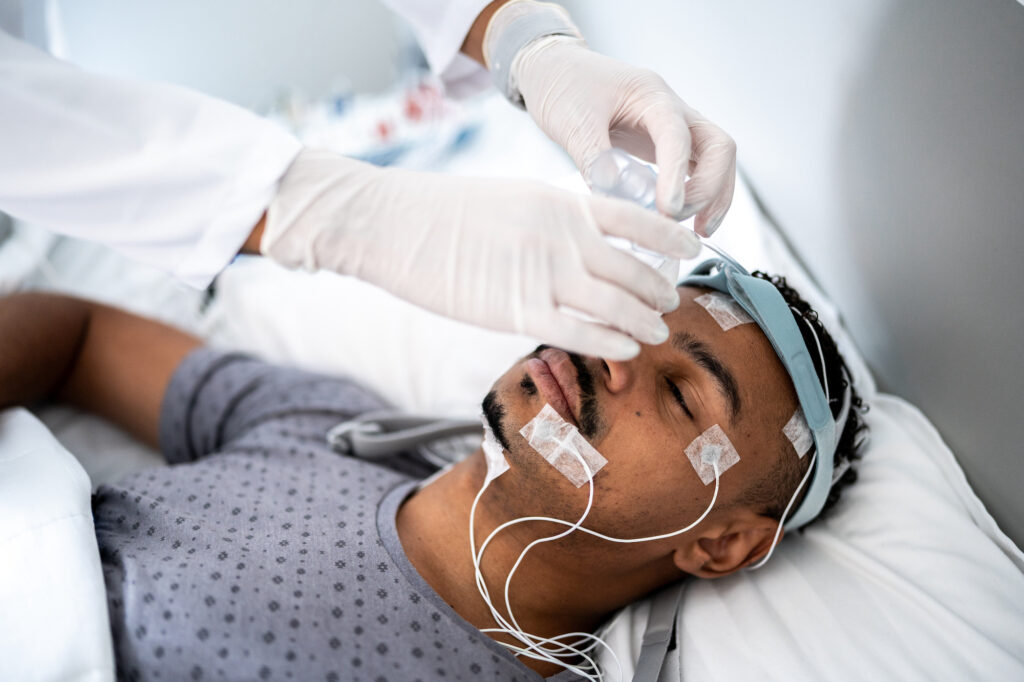Sleep Study Canberra: What It Is and How to Get Started
Sleep is an essential component of overall health and well-being, yet many individuals struggle with sleep disorders that can significantly impact their quality of life. In Canberra, sleep studies are becoming increasingly recognised as a vital tool for diagnosing and treating these disorders. This article will explore what a sleep study entails, the types of sleep disorders it can help identify, and how to get started with the process in Canberra.
Understanding Sleep Studies
A sleep study, also known as polysomnography, is a comprehensive test used to diagnose sleep disorders. It involves monitoring various physiological parameters while the patient sleeps, providing valuable insights into their sleep patterns and behaviours. The data collected during a sleep study can help healthcare professionals identify issues such as sleep apnoea, insomnia, restless legs syndrome, and other sleep-related problems.
Getting started with a sleep study Canberra involves several steps, from initial consultations to the actual testing process. Here’s a detailed guide to help you navigate this journey.

Types of Sleep Studies
There are several types of sleep studies, each designed to assess different aspects of sleep. The most common types include:
- Polysomnography (PSG): This is the most comprehensive type of sleep study, measuring brain waves, oxygen levels, heart rate, and breathing, as well as eye and leg movements.
- Home Sleep Apnoea Testing (HSAT): This is a simplified version of PSG that can be conducted at home. It typically focuses on monitoring breathing patterns and oxygen levels.
- Multiple Sleep Latency Test (MSLT): This test measures how quickly a person falls asleep in a quiet environment during the day, helping to assess excessive daytime sleepiness.
- Maintenance of Wakefulness Test (MWT): This test evaluates a person’s ability to stay awake in a quiet, dark environment, often used for individuals with narcolepsy.
Find more at: Bulk-Bill Sleep Study Canberra Your Guide to No-Cost Testing
Why Are Sleep Studies Important?
Sleep studies are crucial for several reasons. Firstly, they provide a definitive diagnosis of sleep disorders, which is essential for effective treatment. Secondly, they help to identify the underlying causes of sleep issues, allowing for tailored interventions. Lastly, understanding sleep patterns can lead to improved overall health, as many sleep disorders are linked to conditions such as obesity, diabetes, and cardiovascular diseases.
Common Sleep Disorders Diagnosed Through Sleep Studies
Sleep studies can help diagnose a variety of sleep disorders. Some of the most common include:
Obstructive Sleep Apnoea (OSA)
OSA is characterised by repeated interruptions in breathing during sleep due to the relaxation of throat muscles. This condition can lead to fragmented sleep and excessive daytime sleepiness. A sleep study can confirm the diagnosis by monitoring breathing patterns and oxygen levels throughout the night.
Insomnia
Insomnia is a prevalent sleep disorder that involves difficulty falling asleep, staying asleep, or waking too early. Sleep studies can help determine if there are underlying physiological factors contributing to insomnia, such as sleep apnoea or restless legs syndrome.
Restless Legs Syndrome (RLS)
RLS is a condition that causes an uncontrollable urge to move the legs, often accompanied by uncomfortable sensations. A sleep study can help identify the severity of the condition and its impact on sleep quality. Learn more about severity on https://az.research.umich.edu/medschool/glossary/severity
Parasomnias
Parasomnias include abnormal behaviours during sleep, such as sleepwalking, night terrors, and REM sleep behaviour disorder. A sleep study can capture these events and provide insights into their frequency and triggers.
How to Get Started with a Sleep Study in Canberra
Step 1: Consult Your General Practitioner
The first step in the process is to consult your general practitioner (GP). They will assess your symptoms and medical history, and if necessary, refer you to a sleep specialist. It’s important to discuss any sleep issues you are experiencing, including snoring, daytime fatigue, or difficulty concentrating.
Step 2: Visit a Sleep Specialist
Once referred, you will meet with a sleep specialist who will conduct a thorough evaluation. This may include a physical examination and a review of your sleep patterns, lifestyle, and any relevant medical conditions. The specialist will determine if a sleep study is necessary and discuss the most appropriate type of study for your situation.

Step 3: Preparing for the Sleep Study
If a sleep study is recommended, you will receive detailed instructions on how to prepare. This may include:
- Avoiding caffeine and alcohol in the days leading up to the study.
- Maintaining your regular sleep schedule as much as possible.
- Bringing comfortable sleepwear and any personal items you may need.
Step 4: The Sleep Study Process
On the night of the sleep study, you will arrive at the sleep centre, where trained technicians will attach sensors to monitor your body’s functions during sleep. The process is non-invasive and typically takes place in a comfortable, private room. You will be monitored throughout the night, and the data collected will be analysed by the sleep specialist.
Step 5: Follow-Up Consultation
After the sleep study, you will have a follow-up appointment with your sleep specialist to discuss the results. They will explain any diagnoses and recommend appropriate treatment options, which may include lifestyle changes, CPAP therapy for sleep apnoea, or medication for insomnia.
Potential Treatment Options Following a Sleep Study
Once a sleep disorder has been diagnosed, various treatment options may be recommended based on the specific condition and its severity. Common treatment approaches include:
Lifestyle Changes
For many individuals, making simple lifestyle changes can significantly improve sleep quality. This may include: Click here to find more about quality.
- Establishing a regular sleep routine by going to bed and waking up at the same time each day.
- Creating a relaxing bedtime environment, free from distractions such as screens and noise.
- Engaging in regular physical activity, which can help promote better sleep.
Continuous Positive Airway Pressure (CPAP) Therapy
For those diagnosed with obstructive sleep apnoea, CPAP therapy is often the first line of treatment. This involves using a machine that delivers a continuous stream of air through a mask, keeping the airway open during sleep.
Cognitive Behavioural Therapy for Insomnia (CBT-I)
CBT-I is a structured programme that helps individuals address the thoughts and behaviours that contribute to insomnia. It is often more effective than medication for long-term management of sleep issues.
Medications
In some cases, medications may be prescribed to help manage sleep disorders. However, these are typically considered a short-term solution and are used in conjunction with other treatment approaches.
Conclusion
Sleep studies are an invaluable resource for diagnosing and treating sleep disorders in Canberra. By understanding the process and the types of studies available, individuals can take proactive steps towards improving their sleep health. If you are experiencing sleep issues, consulting with a healthcare professional is the first step towards a better night’s sleep.




